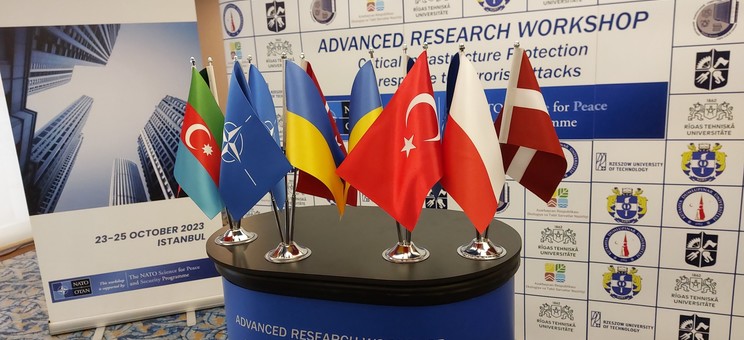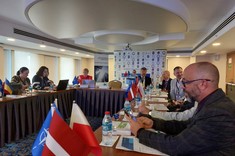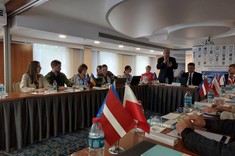In today's world, with the effect of globalisation, people's migration from small or underdeveloped places to larger cities in order to have better living conditions causes the population of these cities to increase rapidly. This situation causes some problems to be carried to the cities and puts the security of the cities in danger. Terrorist attacks are at the top of these dangers. The fact that people who settled in big cities cannot keep up with life here, the economic difficulties, political or religious differences of opinion, and income imbalances cause the peace environment in big cities to deteriorate over time. As a result, the use of some communities living in the city by illegal groups may lead some people and groups in these cities to carry out terrorist attacks.
NATO - Science for Peace and Security Programme with Workshop on Critical infrastructures protection in response to terrorist attacks was organized in Istanbul, Turkey, 23-25 October 2023. In the workshop Rzeszów University of Technology was represented by Prof. P. Koszelnik, Prof. J. Sęp, Prof. T. Rogalski, Prof. D. Strzałka, PhD G. Drupka, PhD A. Rzucidło, PhD. P. Grzybowski.
Prof. Jarosław Sęp has a prezentation about: Risks analysis for the objects of critical infrastructure. Prof. Piotr Koszelnik with prof. D. Strzałka have a presentation about: Potential hazards for the critical infrastructure in Poland.
The problem of potential hazards for the critical infrastructure in Poland can be considered in many aspects and dimensions. A relatively easy-to-use formula of the hybrid warfare allows to conduct different operations against the critical infrastructure of an enemies without formally declaring war. The purpose of these attacks so far has been a demonstration of power, but there are many indications that the next waves of attacks can be and are aimed at a real weakening of defensive capabilities. This is very well visible in the case of Russia-Ukraine conflict. Some of recenlty published reports show a sharp increase in interest in cybersecurity of critical infrastructure and IT/OT environments. Examples of cyberattacks from recent years influence the perception of ICT and cybersecurity as the foundation for high-performance tasks and services, the availability and business continuity requirements at the level of the state, organizations of strategic importance and private entities. Due to the importance of these issues many actions have been developed in recent years, the purpose of which is to increase the cyber security of IT/OT and Industrial IoT environments in order to decrease the level of hazards for the critical infrastructure. Poland, as a country that seriously approaches the topic of building a shield protecting against threats to critical infrastructure, being a member of the EU, assumes an approach enabling the exchange of data on threats, among national sectoral centers on the basis of local laws or with EU entities on the basis of ENISA regulations. In the context of ENISA's program documents, this approach is a part of, for example, ENISA's strategic objective No. 4 Cutting-edge competences and capabilities in cybersecurity across the union, responding to the recommendation to produce ICT protection solutions in the EU:
- systematic estimation of the incident risk (functionalities provided by the situational awareness subsystem),
- ensuring technical and organizational measures appropriate and proportionate to the assessed risk with the latest state of knowledge and incident management capabilities,
- support for safe operation of critical systems.
Workshop was organized by consortium consisting of: Rzeszów University of Technology, Kutahya Dumlupinar University Turkey, National Technical University of Ukraine, Igor Sikorsky Kyiv Politechnic Institute, Riga Technical University.














